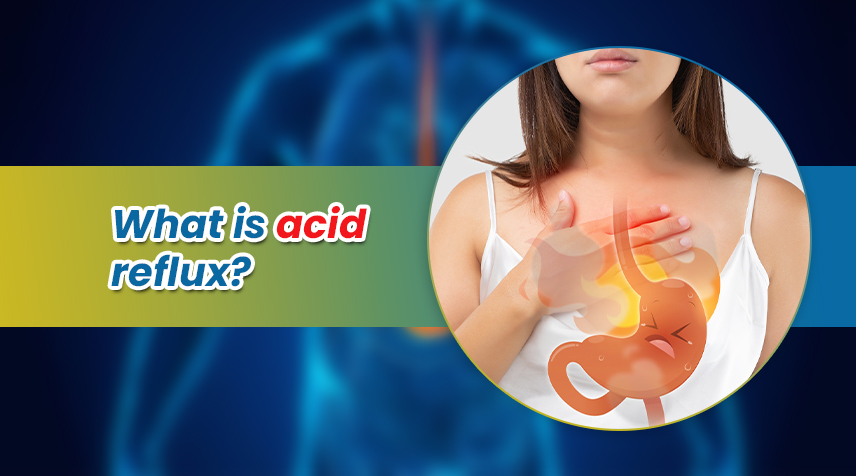What Is Acid Reflux Disease?
At the entry to your digestive system (stomach) is a valve, lies the lower oesophageal sphincter (LES) which is a loop of muscle. Generally, the LES closes itself immediately after the food passes through it. If the LES doesn’t shut off all the way or if it opens up too frequently, acid formed by your stomach can rise into your oesophagus. This can result in indications like a burning chest uneasiness termed heartburn. If these symptoms of acid reflux occur repeatedly over two times a week, you may be suffering with the disease that is acid reflux disease, which is also acknowledged as Gastroesophageal Reflux Disease (GERD).
Gastroesophageal reflux disease (GERD) happens the minute stomach acid frequently streams back into the tube that is joining your mouth and stomach (oesophagus). This slipstream (acid reflux) can aggravate the inside layer of your oesophagus.
Several individuals come into contact with acid reflux from every now and then. However, if the acid reflux occurs repetitively over time, it eventually might bring about GERD.
Most of the people get habitual in managing the uneasiness of GERD with the help of lifestyle modifications and medicines. And however, it’s unusual, but in a few cases the patient might have to undergo surgery to get relief from their discomforting symptoms.
What Causes Acid Reflux Disease?
One of the most common reasons of acid reflux disease is an abdominal aberration termed a hiatal hernia. This transpires the minute the upper portion of your stomach and LES moves directly above the diaphragm, a muscle which parts your stomach from your chest.
Generally, the diaphragm assists in keeping the acid in our stomach. But in case if you are suffering with hiatal hernia, then acid can go up into your oesophagus and root warning signs of acid reflux disease.
Also Read: What is Multi-Organ Failure? What Causes it? Can it be Reversed?
These are other common risk factors that can result in acid reflux disease:
- Consuming big portion of meal or lying back just after munching a meal
- Suffering with overweight or obesity
- Consuming a hefty meal and then lying on your back or twisting over at the stomach
- Snacking at the time of sleep
- Consuming a variety of food items, such as chocolate, citrus, fatty foods, garlic, mint, onions, spicy foods, or tomatoes.
- Consuming certain beverages, like alcohol, carbonated drinks, coffee, or tea
- Smoking
- The time-period of pregnancy
- Medications such as aspirin, ibuprofen, or even certain muscle relaxers, or blood pressure medicines

